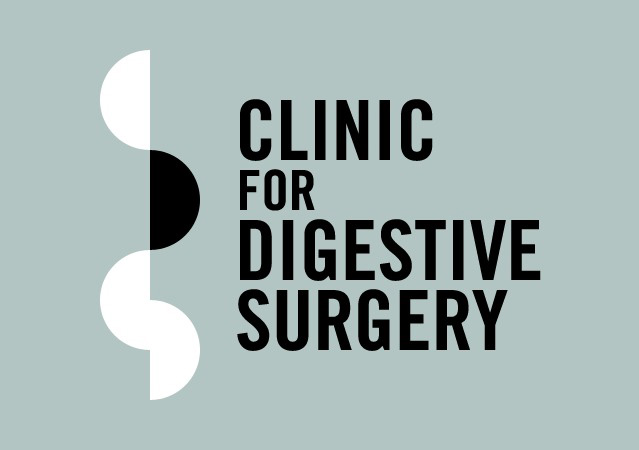Are you struggling with persistent heartburn, acid reflux, or that annoying burning feeling in your chest after eating? You’re not alone. Gastroesophageal reflux disease, commonly known as GERD, impacts millions globally, interfering with daily activities and making mealtime less enjoyable. While medications can provide temporary relief, making a few lifestyle changes can significantly help manage GERD symptoms over the long term. If you’re fed up with relying on antacids and are looking for more sustainable relief options, read on to discover how simple adjustments can enhance your quality of life and help keep GERD under control.
GERD: What’s Really Happening?
GERD happens when the lower esophageal sphincter (LES)—the muscle that serves as a valve between your oesophagus and stomach—becomes weak or relaxes too much. This issue allows stomach acid to backflow into the oesophagus, leading to symptoms like heartburn, regurgitation, and discomfort. While occasional acid reflux is normal, frequent occurrences indicate GERD, which can result in complications if not properly addressed.
1. Maintain a Healthy Weight
Excess weight, particularly around the abdomen, puts additional pressure on your stomach, pushing acid into the oesophagus. Studies indicate that even modest weight loss can significantly alleviate GERD symptoms.
How to Start:
– Set achievable goals for gradual weight loss, aiming to shed about 1-2 pounds each week.
– Include daily physical activity—walking, cycling, or even gentle yoga can help ease pressure on the stomach.
– Pay attention to portion sizes and aim for balanced meals. Steer clear of crash diets, as they may exacerbate reflux symptoms.
2. Adopt a GERD-Friendly Diet
Your dietary choices are vital in managing GERD symptoms. Some foods can irritate the oesophagus or stimulate acid production, while others can help alleviate symptoms.
Foods to Avoid:
– Steer clear of acidic foods like tomatoes and citrus fruits.
– Limit spicy foods, caffeine, and carbonated beverages, as they can relax the lower esophageal sphincter (LES).
– Avoid fatty and fried foods, which can slow down stomach emptying and increase acid production.
GERD-Friendly Alternatives:
– Choose lean proteins such as chicken, turkey, and fish.
– Enjoy non-acidic fruits like bananas, melons, and apples.
– Incorporate whole grains, vegetables, and low-fat dairy products as key diet components.
Keeping a food journal can assist you in identifying what triggers your symptoms and help you adjust your diet accordingly.
3. Eat Smaller, More Frequent Meals
Large meals can put extra pressure on your stomach, making reflux more likely. Instead of having three large meals, consider eating five or six smaller meals throughout the day.
Tips for Meal Timing:
– Try to avoid eating within 2-3 hours before bedtime to give your body time to digest and reduce the risk of nighttime reflux.
– Chew your food thoroughly and eat slowly. Practising mindful eating can help prevent overeating and lessen pressure on the LES.
4. Limit Alcohol and Tobacco Use
Both alcohol and tobacco can weaken the LES and irritate the oesophagus, worsening GERD symptoms.
How to Cut Back:
– Set gradual limits on alcohol consumption, aiming to reduce your intake over time instead of quitting abruptly.
– If you smoke, consider using programs or aids to help you quit. This will not only improve your GERD but also enhance your overall health.
5. Adjust Your Sleep Position
Nighttime acid reflux can disrupt sleep and lead to discomfort in the morning. Fortunately, making a few adjustments to your sleeping environment can help alleviate this issue.
Effective Sleep Tips:
– Raise the head of your bed by 6-8 inches to help prevent acid from flowing back into the oesophagus. It’s best to avoid using extra pillows, as they can strain your neck.
– Try sleeping on your left side. Research indicates that this position can help reduce nighttime reflux by keeping the stomach lower than the oesophagus.
6. Manage Stress Levels
While stress doesn’t directly cause GERD, it can exacerbate symptoms by increasing stomach acid production. Implementing stress-management techniques can positively impact your digestive health.
Simple Stress-Reduction Techniques:
– Engage in relaxation exercises such as deep breathing, progressive muscle relaxation, or meditation.
– Participate in hobbies or physical activities that you enjoy. Even dedicating 10-15 minutes a day can be helpful.
– Cut back on caffeine, as it can heighten both stress and reflux symptoms.
7. Explore Over-the-Counter (OTC) and Prescription Medications
Although lifestyle changes are very effective, medications can offer additional relief for severe cases or during flare-ups.
Common Medications for GERD:
– Antacids work quickly to neutralise stomach acid, providing fast but temporary relief.
– H2 blockers and proton pump inhibitors (PPIs) are longer-lasting medications that decrease acid production. Always consult a healthcare provider before using these regularly, as they may have side effects with long-term use.
Making These Changes Last
Changing habits can be challenging, especially when it involves multiple aspects of your lifestyle. Start small by focusing on one or two changes at a time. Consistency is crucial, and the benefits are significant—long-term relief from GERD leads to a more comfortable and enjoyable daily life.
When to See a Doctor
If lifestyle adjustments and medications aren’t offering enough relief, or if your symptoms are getting worse, it’s important to reach out to a healthcare provider. Untreated GERD can result in complications like esophagitis or Barrett’s oesophagus, so timely intervention is vital.
If you’re ready to take control of your GERD symptoms and embrace sustainable lifestyle changes, start small, stay consistent, and remember that support is always available. The specialised team at the Clinic for Digestive Surgery is here to provide guidance and care tailored to your needs. Don’t let acid reflux control your life—reach out today to learn about treatment options and personalised strategies for lasting relief.










